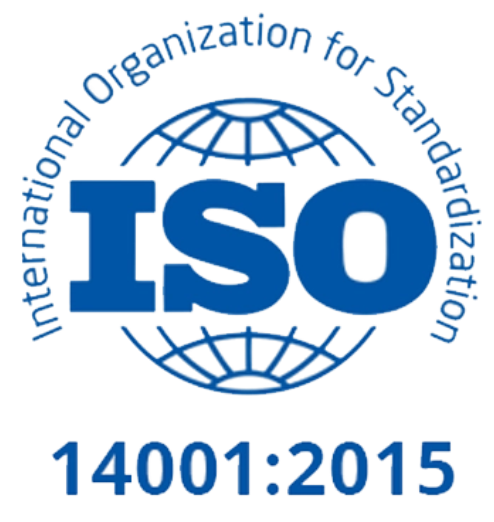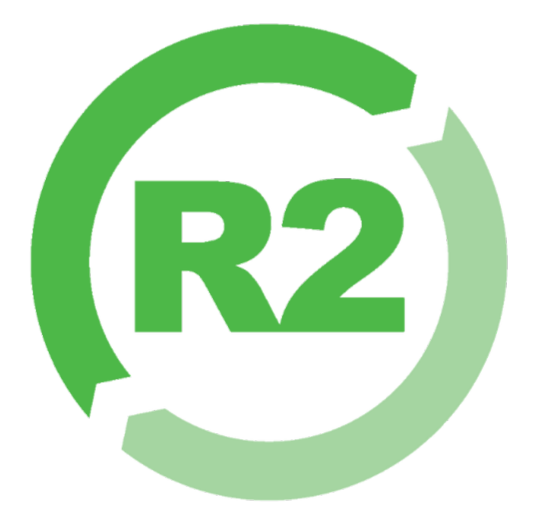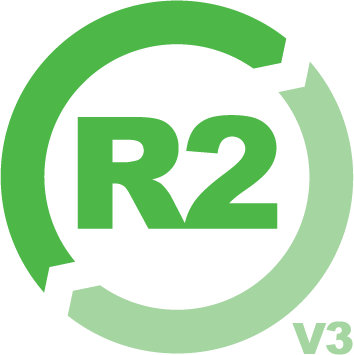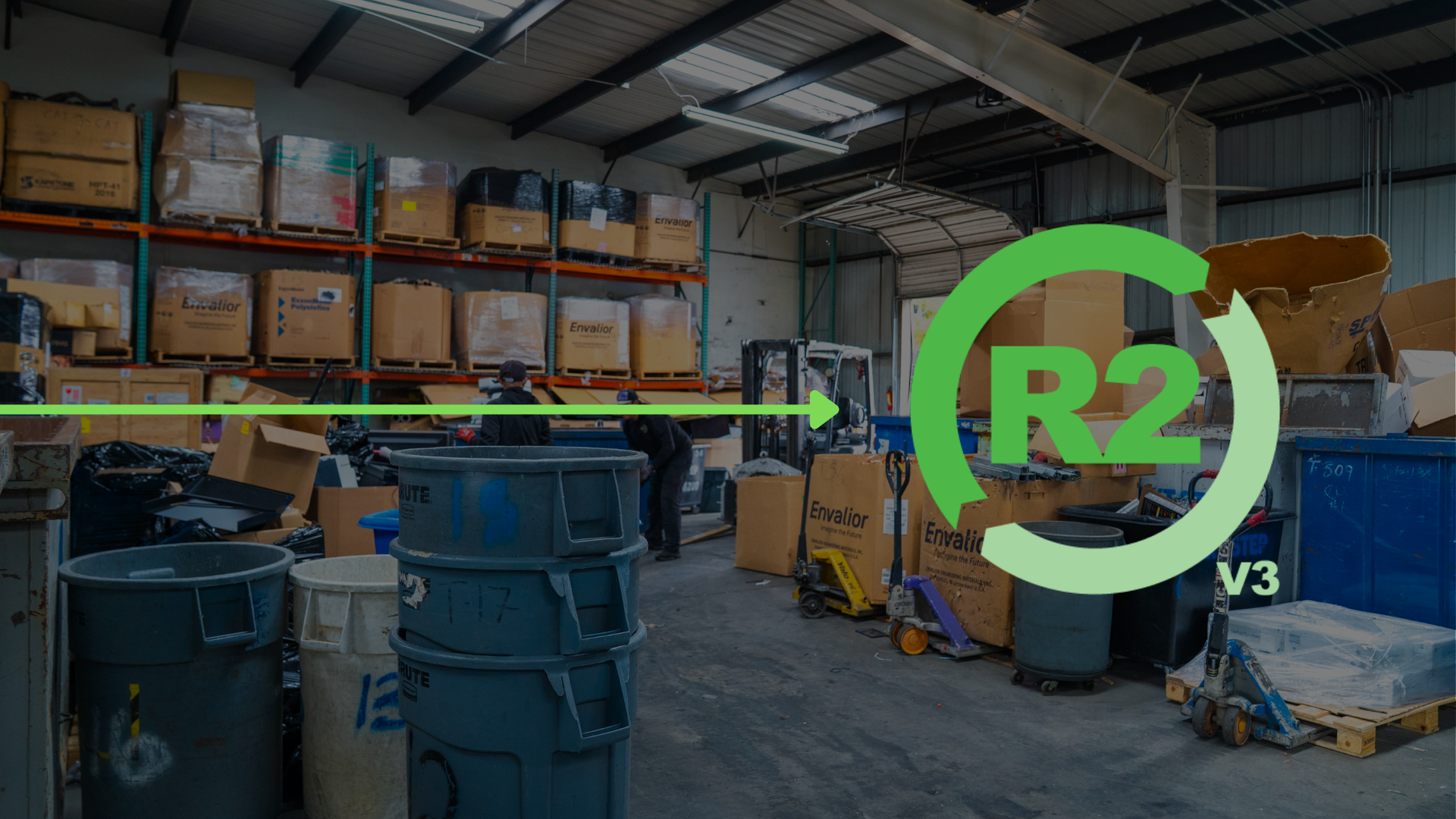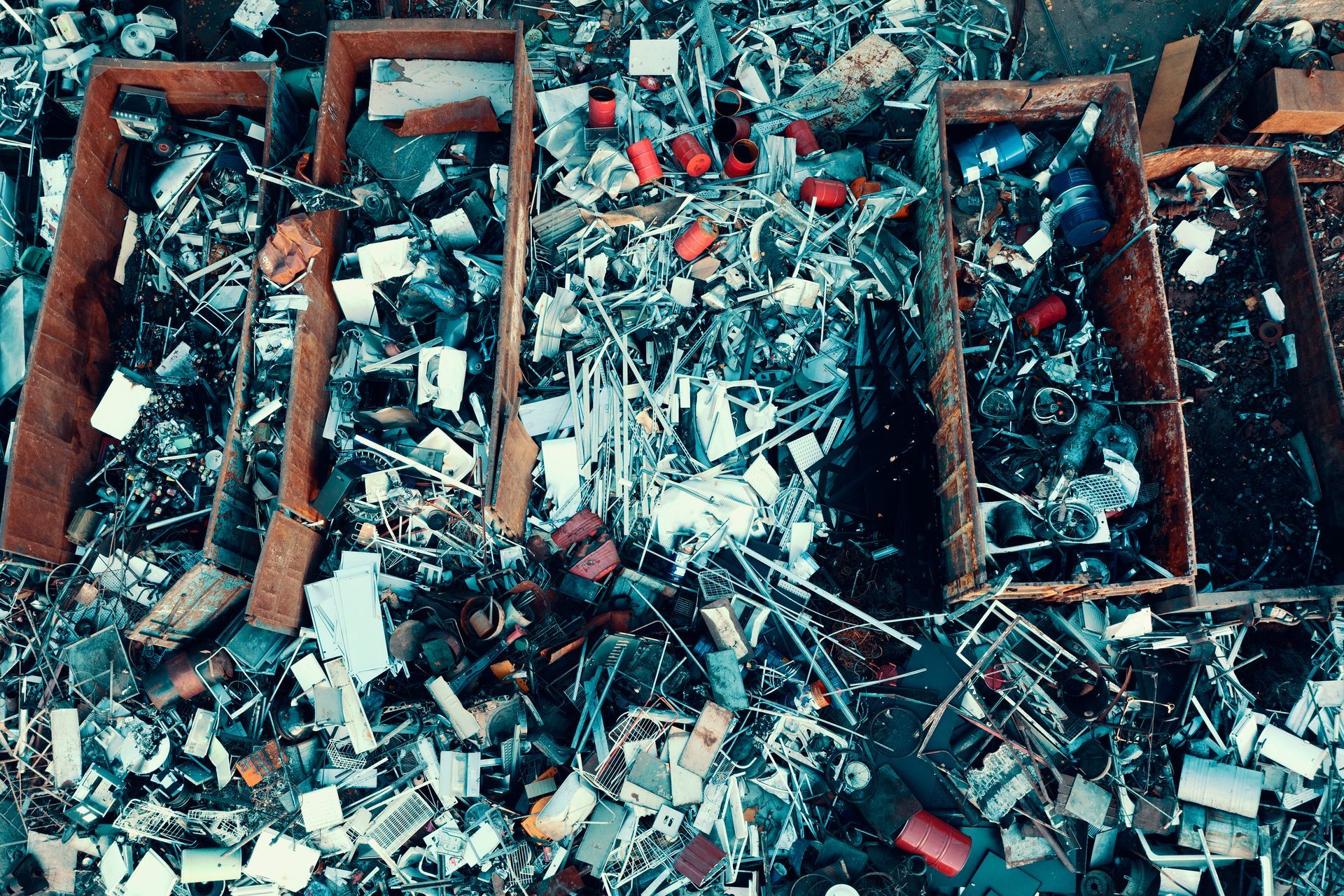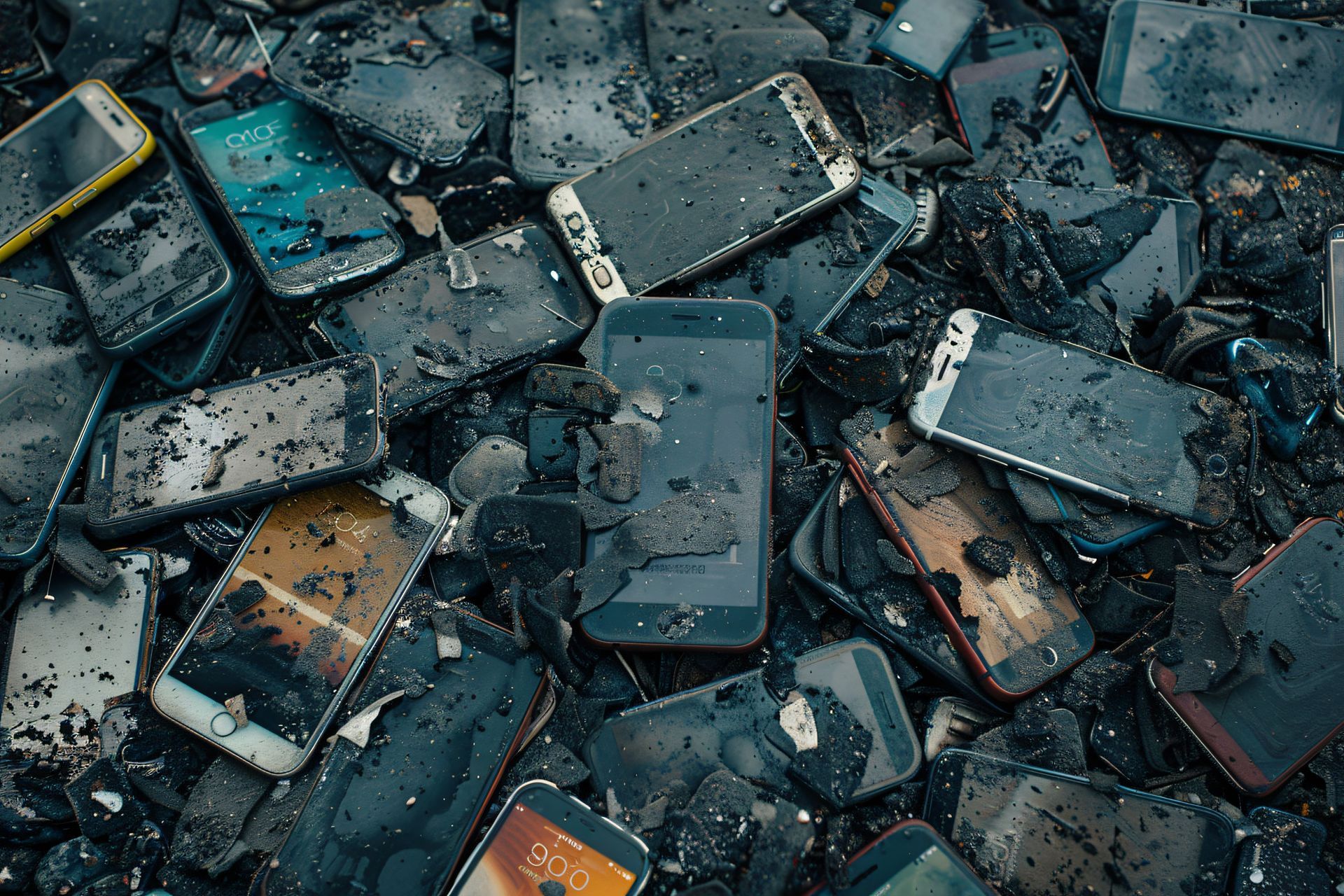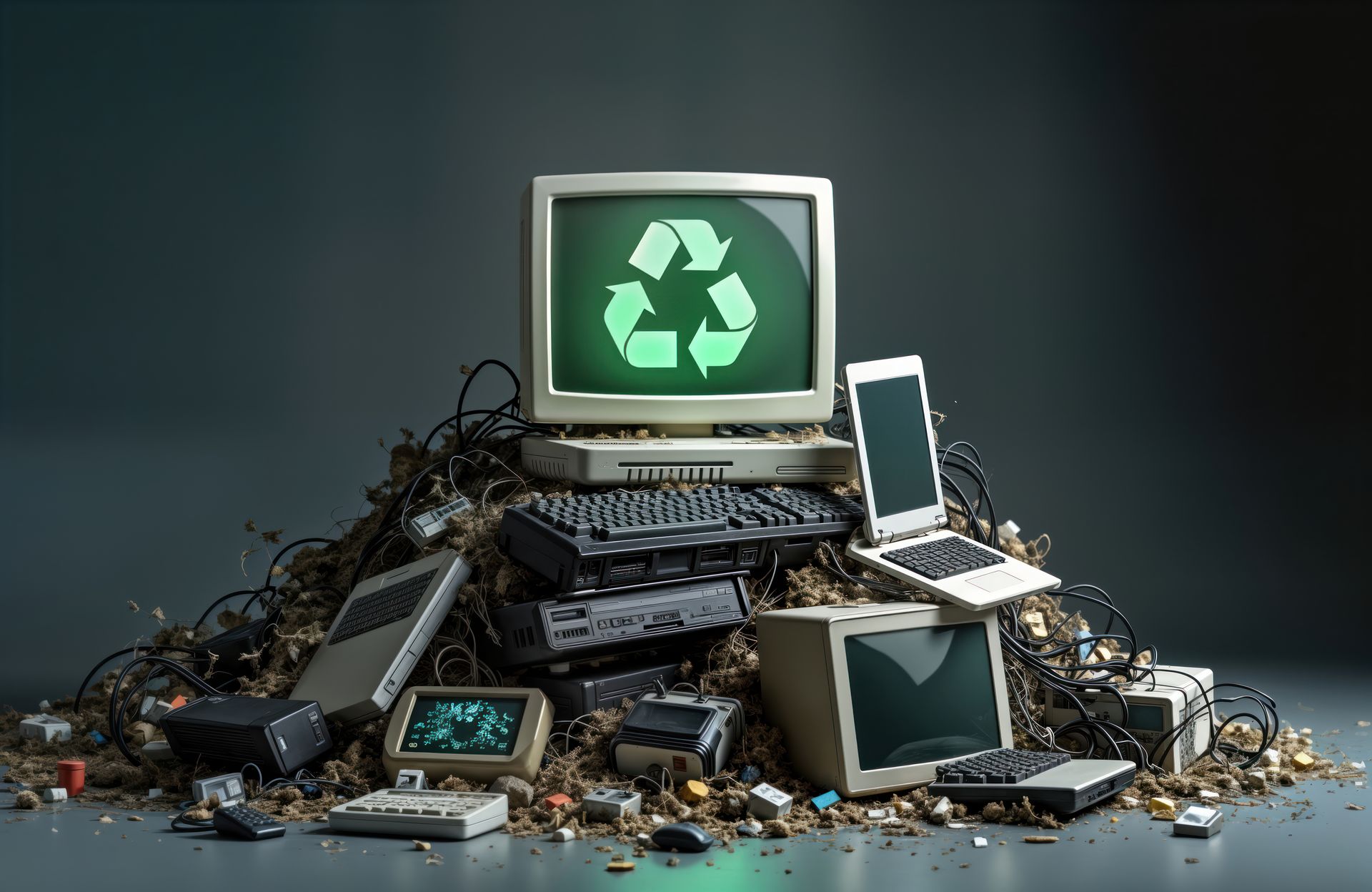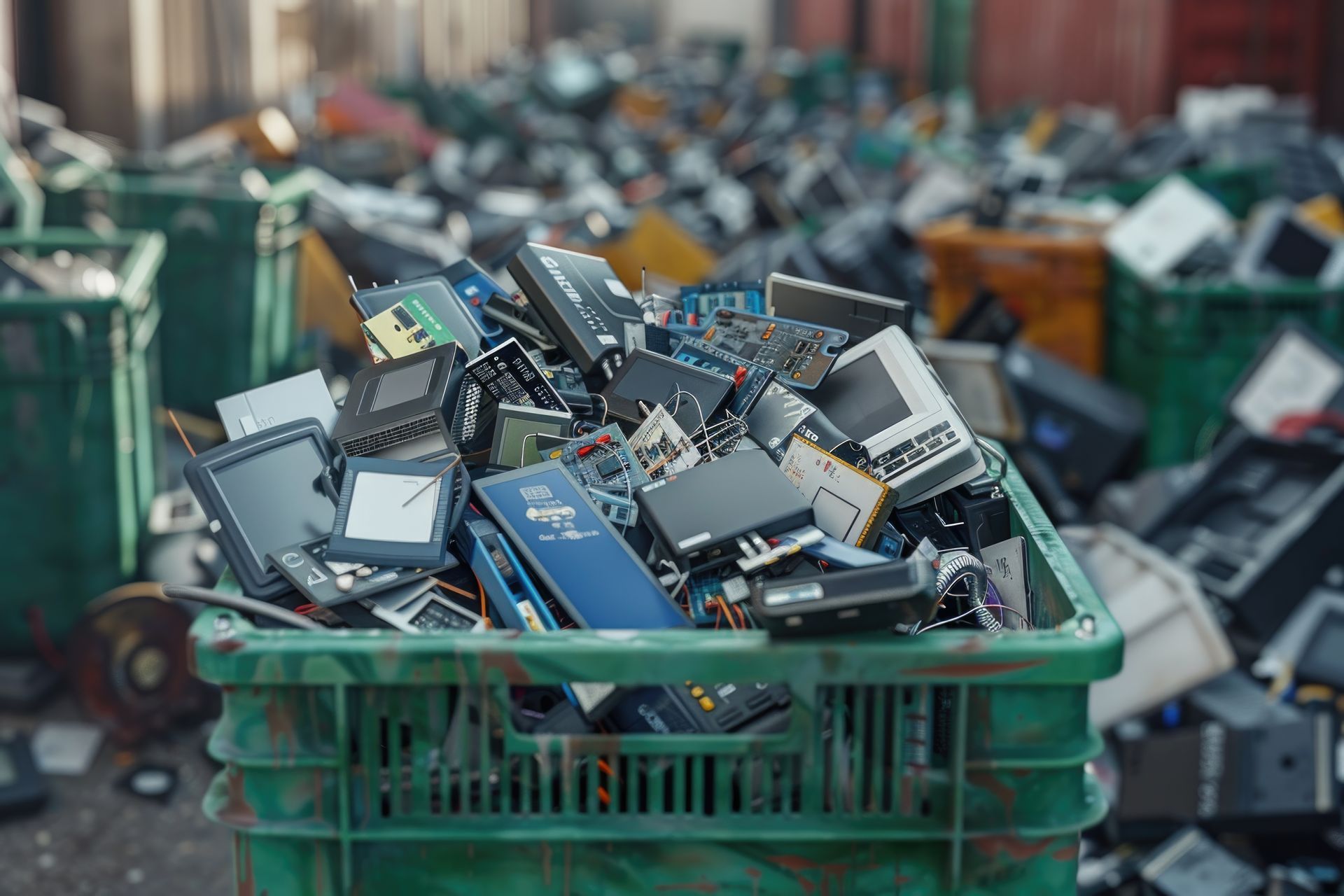Beyond HIPAA: The R2v3 Standard for Trusted Healthcare IT Disposal
In the demanding world of healthcare, organizations manage a colossal, incredibly sensitive trove of patient data, known as ePHI (Electronic Protected Health Information). Think about it: everything from intricate medical histories to billing details and lab results. The integrity and privacy of this data aren't just important; they're absolutely paramount. When the vital IT equipment holding this sensitive information inevitably reaches the end of its useful life, its final phase—IT asset disposal—transforms into a process of critical importance, operating under far more stringent demands than typical commercial practices.
This article will meticulously explore the unique HIPAA compliance and patient data security considerations that elevate healthcare IT asset disposal. We'll lay bare the severe repercussions of improper ePHI disposal, which can include compromising patient privacy, facing astronomical financial penalties (recalling incidents like Kaiser's widely reported $49 million settlement), enduring severe legal repercussions, and ultimately, eroding patient trust. For healthcare providers, flawlessly executed IT asset disposal isn't merely a "nice-to-have"; aligning with the R2v3 standard makes it a foundational pillar of patient care and maintaining public confidence.
The HIPAA Imperative: Laying the Foundation for ePHI Disposal
Healthcare organizations fundamentally operate under the robust framework of HIPAA. This crucial law lays the groundwork for protecting ePHI, but its requirements for asset disposal can be, at times, less prescriptive than what truly secure practices demand.
HIPAA’s Privacy and Security Rules directly govern the secure disposal of ePHI. They unequivocally mandate that covered entities and their business associates implement comprehensive administrative, physical, and technical safeguards for ePHI throughout its entire lifecycle, including its final disposition. The HITECH Act further strengthened HIPAA enforcement, escalating penalties for non-compliance and establishing rigorous breach notification rules. This means, quite simply, that casually discarding an old computer could directly lead to a serious HIPAA violation.
Crucially, any ITAD vendor—an electronic recycler or e waste recycler—handling ePHI on behalf of a healthcare organization becomes a Business Associate (BA) under HIPAA, and thus requires a signed Business Associate Agreement (BAA). While HIPAA dictates that data must be rendered "unrecoverable" and disposal must use "appropriate safeguards," it often doesn't detail how to achieve these precise goals. This is exactly where the R2v3 standard steps in, offering a higher level of assurance for healthcare IT assets.
Elevating Security: How the R2v3 Standard Goes Beyond HIPAA
The R2v3 standard provides the meticulous, auditable framework needed to elevate healthcare IT disposal practices, significantly enhancing the safeguards outlined by HIPAA. It defines what constitutes a truly responsible recycling certification for electronics.
What R2v3 Certification Specifically Means for Healthcare:
R2v3 Certification is a voluntary, third-party standard developed by Sustainable Electronics Recycling International (SERI) for electronics recyclers. It sets the highest benchmarks for environmental protection, data security, and worker safety. When an
electronic recycler achieves this status, it signals their commitment to a superior level of integrity in
e-waste recycling.
Directly Addressing HIPAA's "How":
- Prescriptive Data Sanitization (NIST 800-88): The R2v3 standard directly addresses HIPAA's often open-ended "unrecoverable" mandate. It requires adherence to NIST SP 800-88 Revision 1 (Guidelines for Media Sanitization). This means applying specific methodologies—"Clear," "Purge," or "Destroy"—based on data sensitivity and media type. It provides the exact "how" that HIPAA often leaves open, ensuring data on healthcare IT assets is genuinely purged. This is a vital component of secure it recycling.
- Rigorous Chain of Custody: R2v3 enforces strict requirements for documented, serialized tracking of assets from pickup to final disposition. This meticulous chain of custody is crucial for auditable ePHI disposal and provides an unparalleled level of accountability.
- Comprehensive Facility Security: The R2v3 standard demands robust physical security measures at recycling facilities, including stringent access controls and constant surveillance, providing tangible safeguards for ePHI-bearing devices.
- Mandatory Downstream Auditing: A core strength of R2v3 is its requirement for recyclers to meticulously vet and continuously audit all downstream vendors in their processing chain. This ensures ePHI protection throughout the entire recycling journey—a critical safeguard against unauthorized access.
Beyond HIPAA's Direct Scope (Added R2v3 Value for Healthcare):
While HIPAA focuses on data privacy, the R2v3 standard provides broader benefits for healthcare recycling:
- Environmental Responsibility: R2v3’s strict rules prohibit landfilling hazardous e-waste and mandate responsible processing (supported by an ISO 14001 EMS). This protects the environment and adds significant CSR value for healthcare IT organizations.
- Worker Health & Safety: R2v3’s focus on protecting recycling workers (via an ISO 45001 HSMS) ensures ethical disposal practices align perfectly with healthcare’s mission to do no harm.
- Focus on Reuse & Recovery: R2v3 prioritizes the safe reuse of functional equipment and the recovery of valuable materials. This not only benefits the environment but also supports sustainable asset management for it recycling efforts in healthcare.
Paramount Considerations for Healthcare IT Asset Disposal
Beyond the regulatory frameworks, specific practicalities are paramount for truly secure healthcare IT asset disposal.
Secure Data Destruction for ePHI-Bearing Assets:
This is the ultimate protection for patient data. It requires more than simple wiping; healthcare demands certified methods for various media types. This includes NIST-compliant wiping for hard drives and SSDs, degaussing for magnetic media, and physical destruction methods like shredding or disintegration (especially critical for SSDs). Crucially, the process must include rigorous verification of data destruction, with certified proof provided. Organizations must also weigh considerations for on-site versus off-site destruction.
Business Associate Agreements (BAAs):
Re-emphasize that any IT asset disposal provider handling ePHI on behalf of a healthcare organization must sign a BAA. The R2v3 standard provides a strong foundational framework for a truly compliant BAA.
Handling Diverse Medical Devices:
Beyond standard IT, the complexity of recycling specialized medical devices (like diagnostic equipment or lab instruments) that may store ePHI requires particular expertise. These items often have unique components and data storage methods, necessitating an electronic recycler well-versed in their specific handling.
Audit-Ready Documentation:
The imperative for comprehensive, granular, and easily auditable reports that satisfy HIPAA, HITECH, and other compliance audits cannot be overstated. A certified recycler provides this level of transparency.
Choosing a Certified Partner: The NXT STEP Recycling Advantage
For healthcare organizations across California, selecting a partner for IT asset disposal demands nothing less than absolute confidence in their security, compliance expertise, and proven experience. NXT Step Recycling is positioned as a leading provider uniquely capable of meeting these exacting standards, offering unparalleled healthcare recycling services.
NXT Step Recycling is deeply committed to upholding the highest security and compliance standards for healthcare IT asset disposal. Our operations are backed by relevant industry certifications such as R2, e-Stewards, and ISO 14001, underscoring our dedication to responsible and secure electronic waste management. Crucially for healthcare, NXT Step Recycling is NAID AAA Certified for data destruction, providing the highest level of assurance for sensitive patient data. We implement a rigorous, secure chain of custody, employ NIST-compliant data destruction methodologies, and provide robust, auditable reporting tailored specifically for healthcare IT needs. We have extensive experience handling ePHI-bearing assets and complex medical devices. As seasoned experts in both federal HIPAA mandates and California-specific e-waste regulations, we offer complete reassurance to healthcare entities regarding our proven reliability and unwavering dedication to protecting patient data. We stand as a truly certified recycler and a premier e waste recycler for the healthcare sector.
Your Next Step: True Trust in Healthcare IT Disposal
The unique, high-stakes nature of healthcare IT asset disposal simply cannot be overstated. It is far more than just a logistical process; it is a fundamental cornerstone of patient trust, regulatory adherence, and the financial stability of your organization. Ensuring secure, compliant ITAD, guided by the R2v3 standard, is an absolute imperative for any healthcare provider.
NXT Step Recycling stands ready as your expert partner, uniquely positioned to meet these exacting demands for healthcare entities in California. We offer the precision, security, and accountability required to protect your most sensitive patient data through our comprehensive it recycling and dedicated healthcare recycling services.
Elevate your patient data security and compliance with the gold standard. Contact NXT Step Recycling today for an expert consultation on your
healthcare IT disposal needs and
R2v3 standard compliance in California. You can reach us directly at
+1 408-896-6200 or visit our facility at
918 Commercial St, San Jose, CA 95112, United States. Take the next crucial step in safeguarding your patient data by exploring our comprehensive
it recycling solutions on our website.
